Credential Evaluation for International Graduates

0%
People entering professions with provincial or federal accreditation, licences or certificates must go through whatever body governs their industry.
LIP
Canada has some of the highest educational credentials, licences and certifications worldwide, particularly when it comes to professional jobs such as lawyers, doctors, accountants, counsellors and engineers. Some of these careers won’t even allow workers to ply their trade in another province if they don’t have the right paperwork.
It can be that strict, and more importantly, it is that strict with everybody.
Newcomers in certified, licenced or accredited professional occupations must prove that the education and certificates that they’ve received abroad meet Canada’s stringent criteria.
Many newcomers are acutely aware that it may take several years before they are fully recertified, regardless of how long they’ve worked in that industry. So, some newcomers decide to immigrate to Canada by becoming an international students first. This allows them to get a Canadian education and job experience, which goes far to smooth their integration into the country.
That isn’t the case for all. And many, particularly those who are older or who cannot afford the high university and college fees, do not have this option. Instead, they come to Canada with the hopes that employers accept the degrees, diplomas and certificates that they currently possess.
As an employer in a trade that doesn’t require accreditation, licences or certifications, you can decide whether or not your staff’s education is enough. No rule or law demands that all employers hire people with Canadian degrees, education and work experience.
So, it is up to you and your comfort level.
If you doubt the reputation of their foreign degree, a quick google search can solve that. With just a few minutes of research on their post-secondary education website, you will see if their program aligns with your needs. This is easy, simple, and more importantly, you do not make your newcomer hire feel lesser for having a degree from another country.
Though Canada has an excellent educational system, several countries either match or surpass it. So, keep that in mind when looking at a potential hire with a foreign degree. And if you are in doubt, there are ways that your potential hire can prove themselves.
According to Immigration, Refugees and Citizenship Canada (IRCC), a newcomer can assess their foreign education through various organizations. Having their education assessed not only helps them with their immigration status, but it ensures that you, and other employers, are confident in their abilities.
However, the IRCC asks that people use an organization from the following list, as they will not accept assessments
from any other group. This includes:
Some of these assessment organizations are specific to certain provinces. So, if there is any doubt, they should be contacted directly.
People entering professions with provincial or federal accreditation, licences or certificates must go through whatever body governs their industry. This may be as little work as submitting a few files to restart one’s education from scratch. If in doubt, the newcomer needs to contact the regulatory body in the province where they plan to live to find out if they need a licence to practise and what steps they must take to get one.
For assessments of medical specialists and family physicians, newcomers must get a report from the Medical Council of Canada if their primary occupation is:
specialist physician (2016 NOC code 3111)
general practitioner/family physician (2016 NOC code 3112)
Pharmacists who need a licence to practice must go through the Pharmacy Examining Board of Canada.
This applies to those who work in:
a hospital pharmacy
a long-term care facility
a community pharmacy



